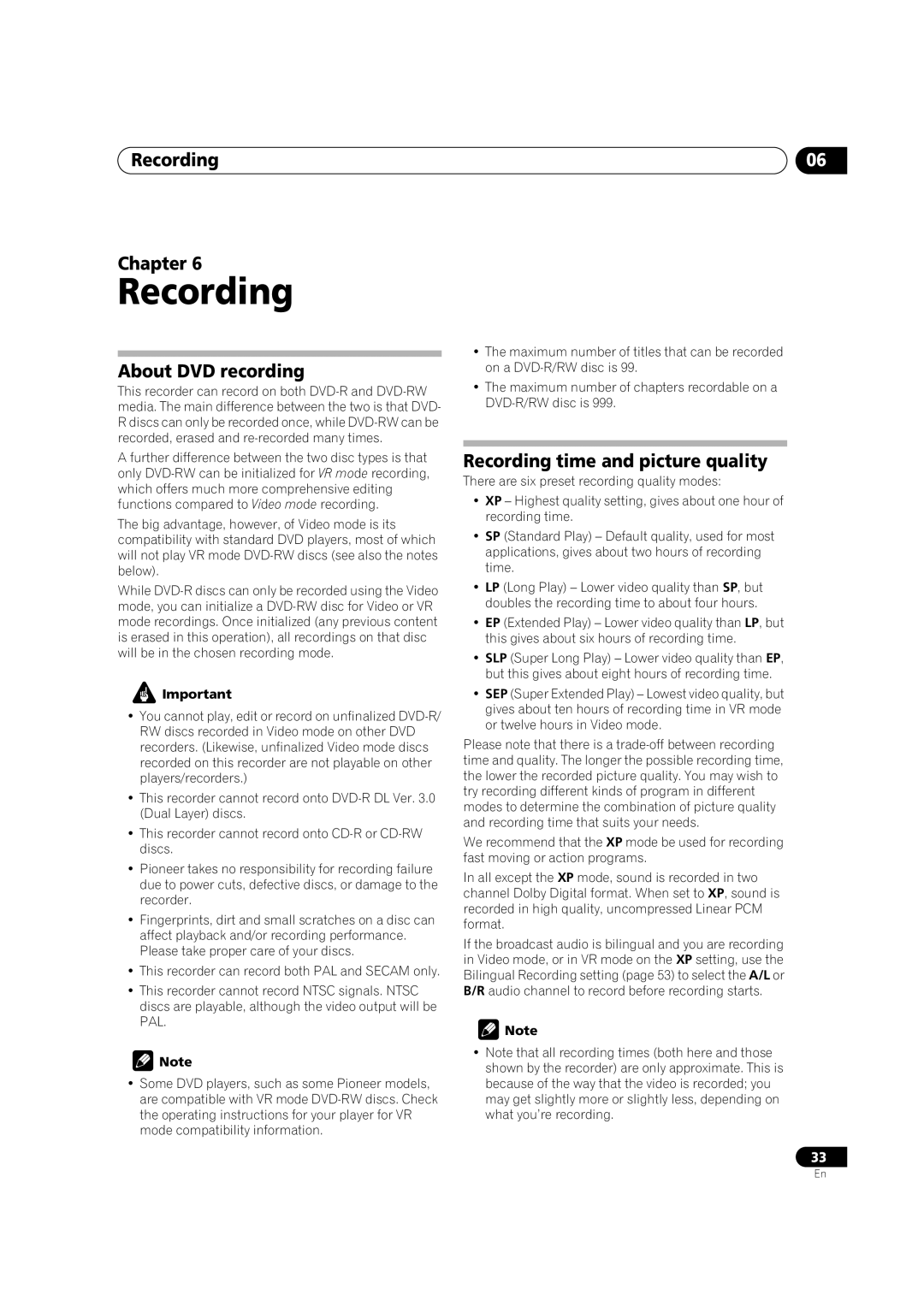
Recording
Chapter 6
Recording
About DVD recording
This recorder can record on both
A further difference between the two disc types is that only
The big advantage, however, of Video mode is its compatibility with standard DVD players, most of which will not play VR mode
While
![]() Important
Important
•You cannot play, edit or record on unfinalized
•This recorder cannot record onto
•This recorder cannot record onto
•Pioneer takes no responsibility for recording failure due to power cuts, defective discs, or damage to the recorder.
•Fingerprints, dirt and small scratches on a disc can affect playback and/or recording performance. Please take proper care of your discs.
•This recorder can record both PAL and SECAM only.
•This recorder cannot record NTSC signals. NTSC discs are playable, although the video output will be PAL.
![]() Note
Note
•Some DVD players, such as some Pioneer models, are compatible with VR mode
06
•The maximum number of titles that can be recorded on a
•The maximum number of chapters recordable on a
Recording time and picture quality
There are six preset recording quality modes:
•XP – Highest quality setting, gives about one hour of recording time.
•SP (Standard Play) – Default quality, used for most applications, gives about two hours of recording time.
•LP (Long Play) – Lower video quality than SP, but doubles the recording time to about four hours.
•EP (Extended Play) – Lower video quality than LP, but this gives about six hours of recording time.
•SLP (Super Long Play) – Lower video quality than EP, but this gives about eight hours of recording time.
•SEP (Super Extended Play) – Lowest video quality, but gives about ten hours of recording time in VR mode or twelve hours in Video mode.
Please note that there is a
We recommend that the XP mode be used for recording fast moving or action programs.
In all except the XP mode, sound is recorded in two channel Dolby Digital format. When set to XP, sound is recorded in high quality, uncompressed Linear PCM format.
If the broadcast audio is bilingual and you are recording in Video mode, or in VR mode on the XP setting, use the Bilingual Recording setting (page 53) to select the A/L or B/R audio channel to record before recording starts.
![]() Note
Note
•Note that all recording times (both here and those shown by the recorder) are only approximate. This is because of the way that the video is recorded; you may get slightly more or slightly less, depending on what you’re recording.
33
En
